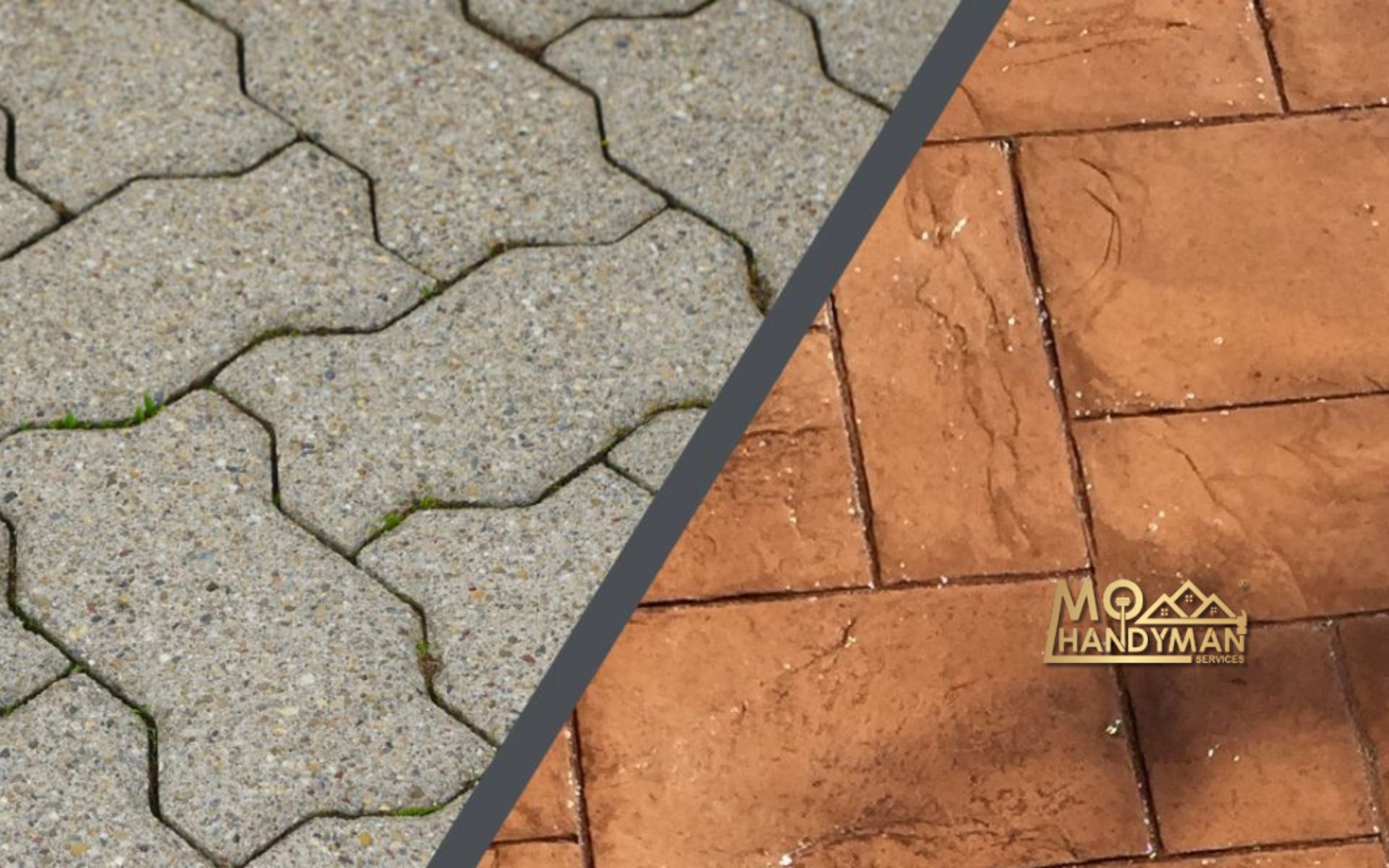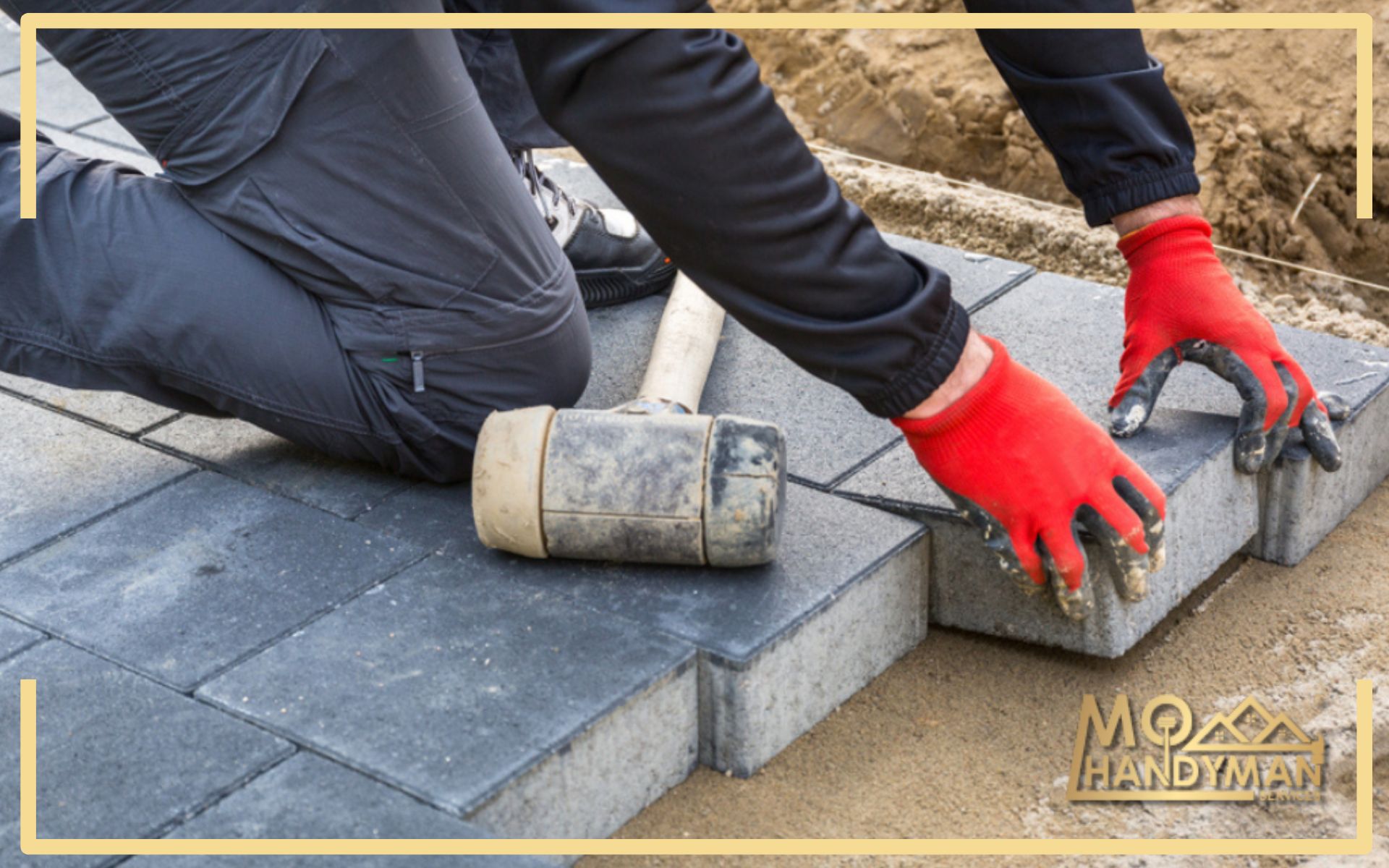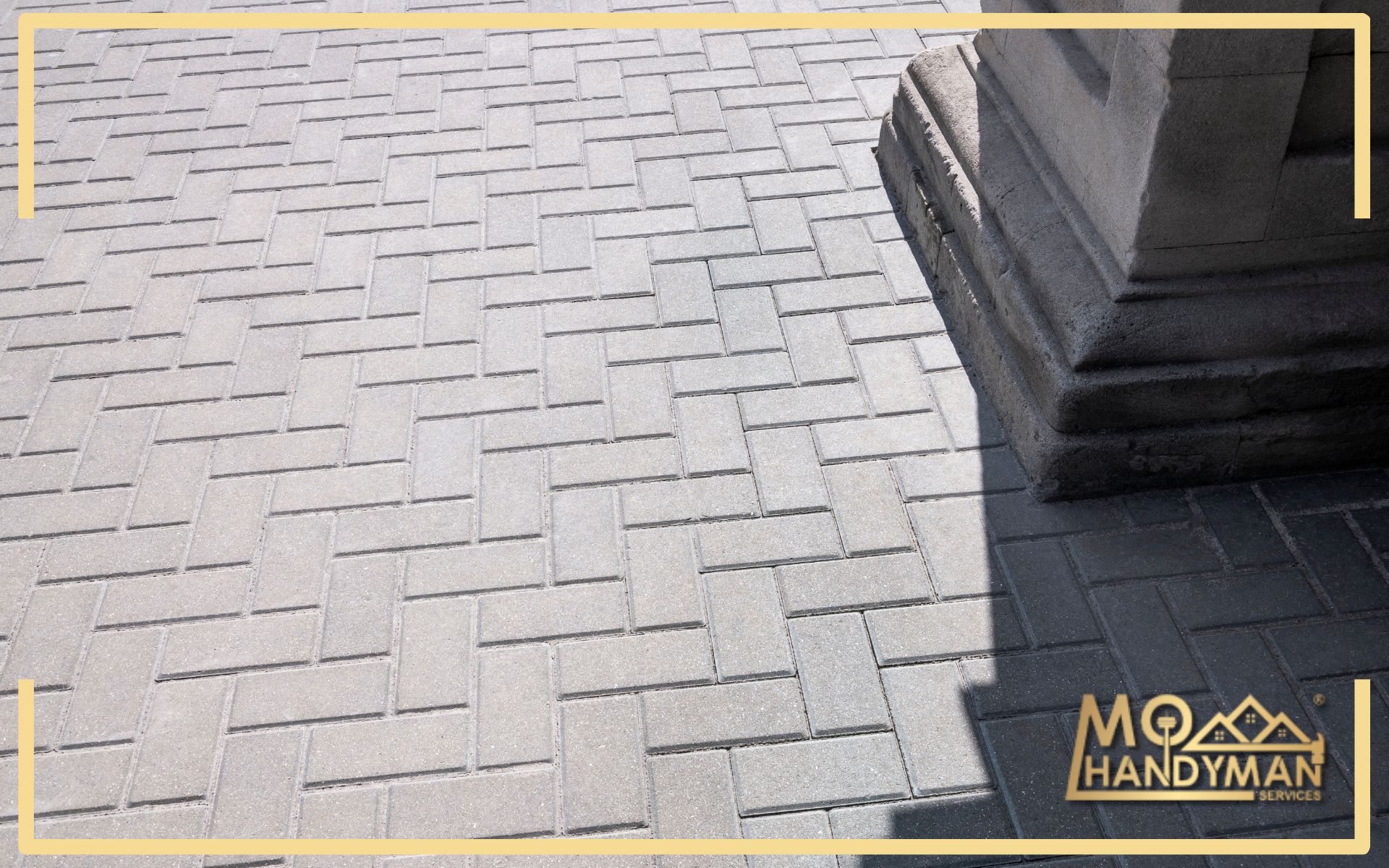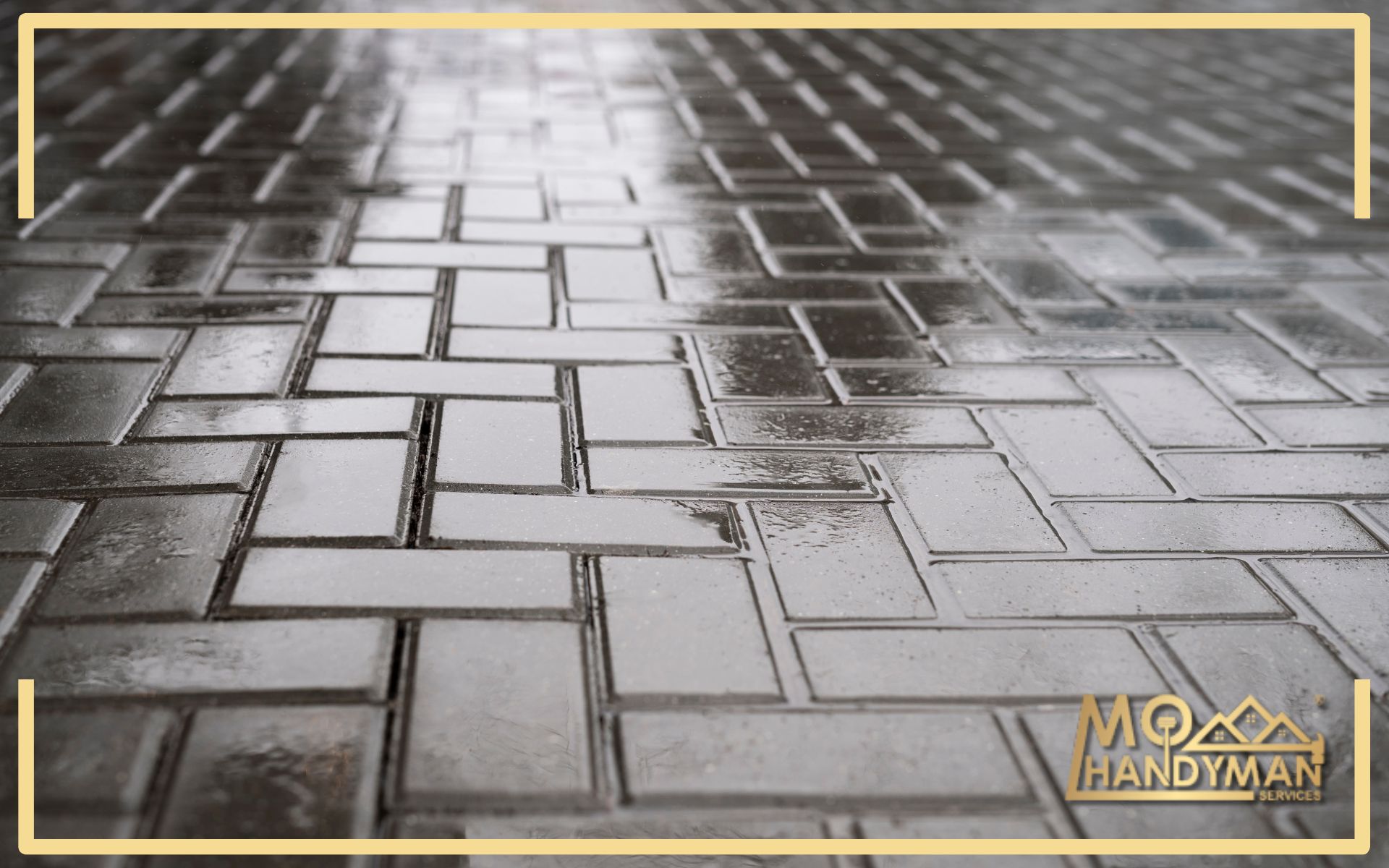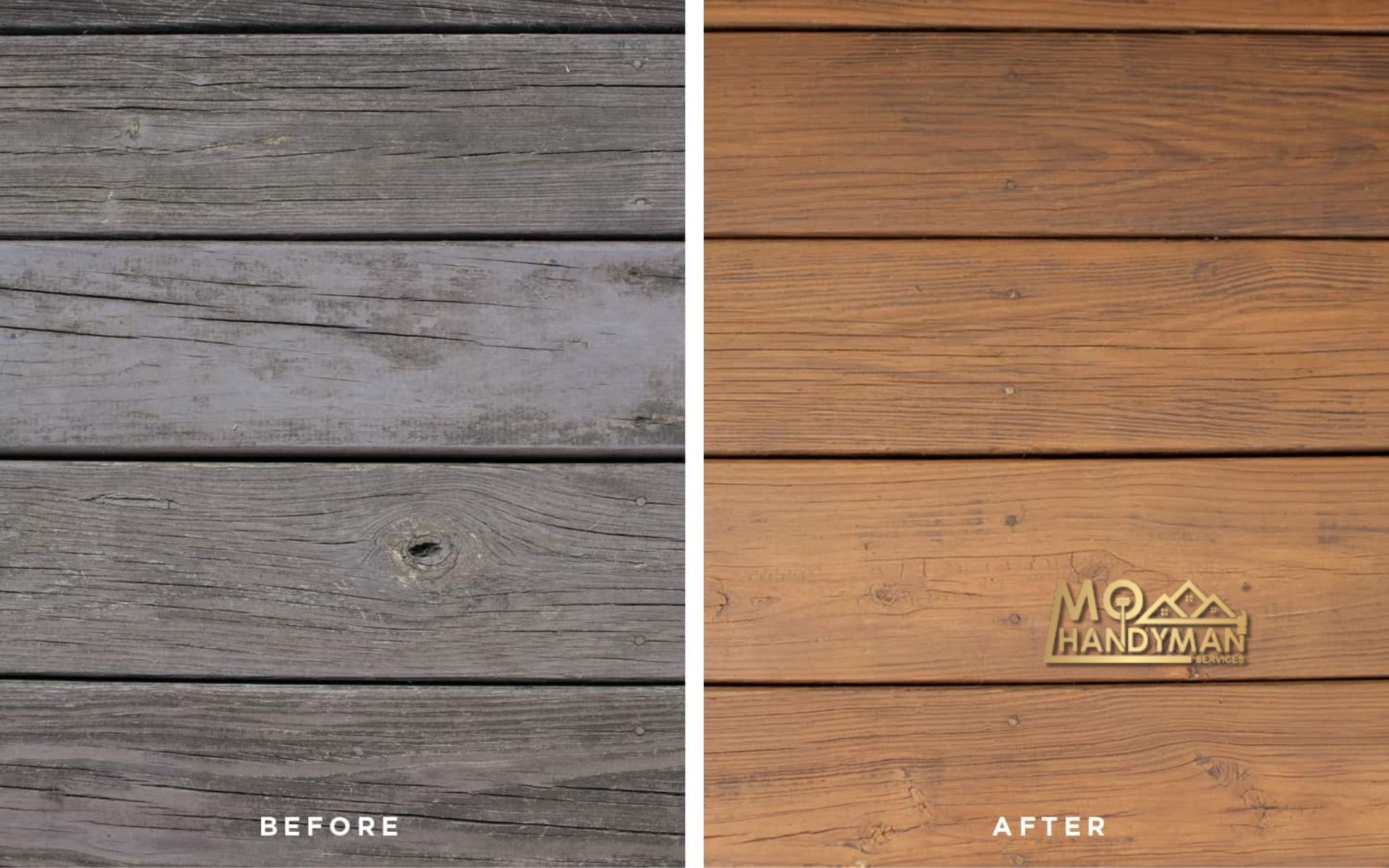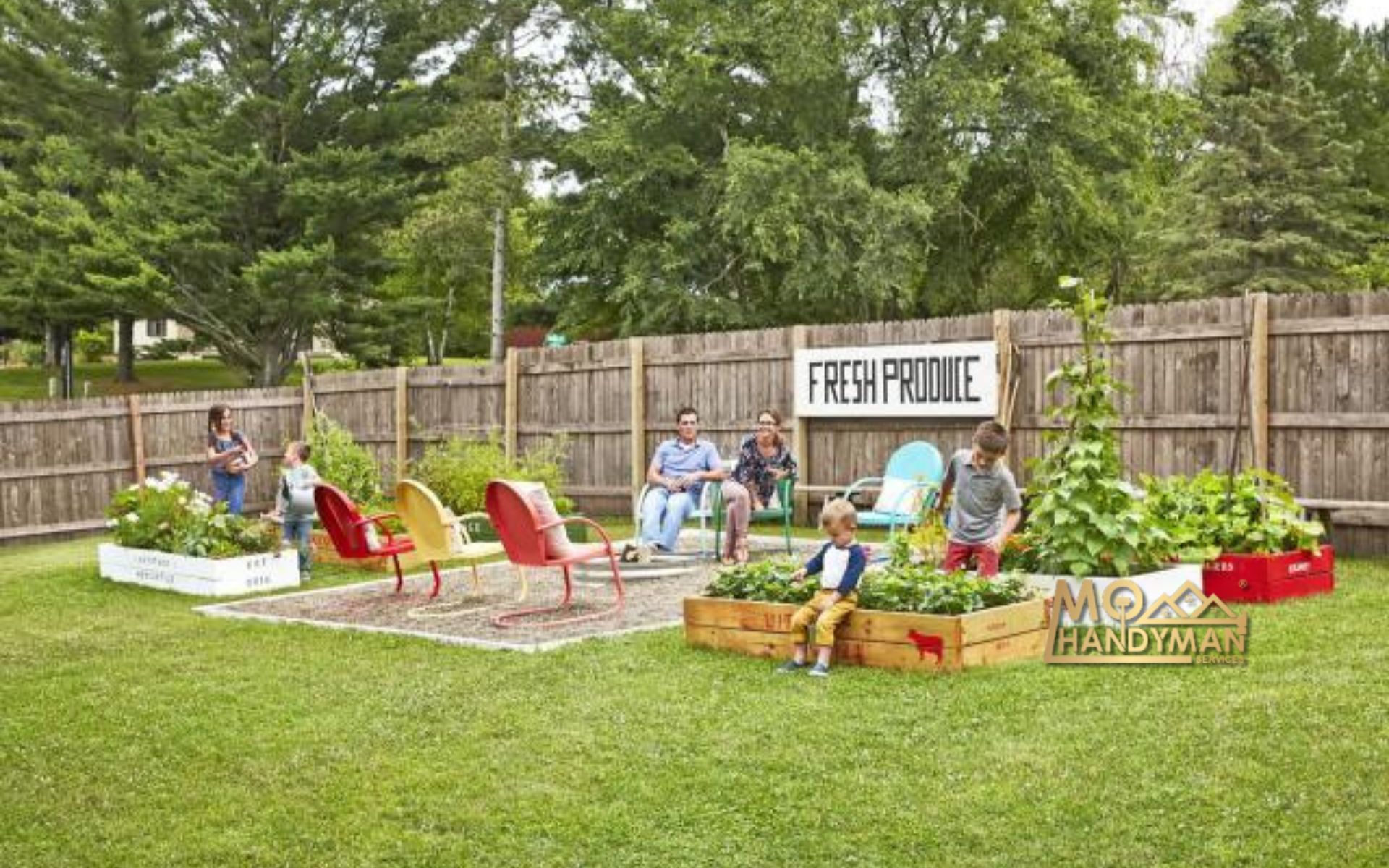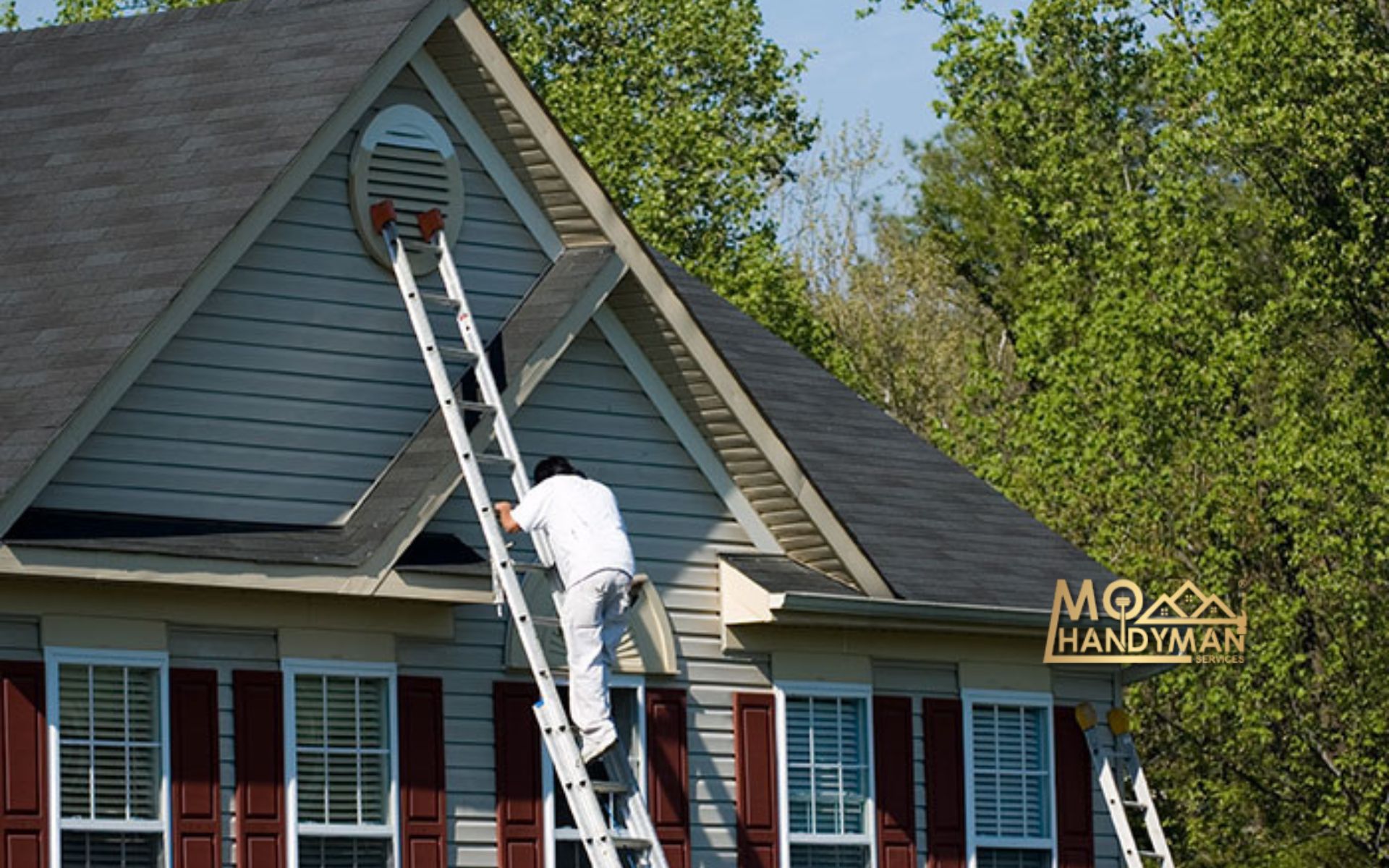Choosing Between Interlocking and Concrete Walkways
When it comes to upgrading the pathways that guide you and your guests around your property, choosing the right material for your walkways is essential. With various options to weigh, homeowners often find themselves caught in the debate of interlocking vs concrete walkways. A well-chosen path not only improves curb appeal but also has the potential to increase the value and functionality of your home.
Interlocking vs Concrete: A Walkway Materials Comparison
Functionality and Aesthetics: Interlocking Walkways
Interlocking walkways have surged in popularity due to their versatility and aesthetic appeal. Comprising individual stones that fit together, these walkways can adapt to any variety of landscape designs, from classic to contemporary. But how do these stylish pathways measure up when it comes to other crucial factors like durability, maintenance, and cost?
The Classic Appeal of Concrete Walkways
On the other hand, concrete walkways offer a traditional look and are known for their longevity. When it comes to the ease of walkway installation, concrete can seem like a straightforward choice. However, homeowners must consider the long-term implications of choosing concrete, from the potential for cracking to the environmental impact.
Is Interlocking Better Than Concrete?
The answer to whether interlocking is better than concrete is complex, hinging on factors such as budget, climate, maintenance preferences, and environmental considerations. Both have merits that justify their use in different scenarios.
Weighing Your Options: Best Walkway Options for Durability
For those looking for durable walkways, it’s essential to look beyond just the surface appeal. Durability comes from the ability to withstand high traffic, resist weather conditions, and maintain form with minimal repairs over time.
The Influence on Home Value
Does interlocking increase home value? Installing interlocking walkways can indeed raise your home’s value. This is partly due to the perceived luxury that comes with custom-designed stonework and the reduced maintenance that appeals to future homebuyers.
The Pros and Cons of Interlock Driveways
Interlock driveways have their set of benefits and drawbacks that homeowners must consider. They present a unique look and can be custom-tailored to your home’s aesthetic, potentially boosting curb appeal. However, considering the cost and time involved in installation and maintenance is crucial.
Is it Better to do Pavers or Concrete?
Pavers, a form of interlocking walkway, provide a distinct appearance with many design options. Concrete is unmatched in its uniform appearance and ease of installation. Between pavers or concrete, the balance tips based on personal preference, budget, and the look homeowners aim to achieve.
Stylish Walkways with Eco-Friendly Considerations
In the quest for stylish walkways, the ecological footprint is becoming increasingly important. Eco-friendly walkway materials not only contribute to a sustainable environment but may also offer financial benefits in some regions through reduced resources like water for maintenance.
Walkway Maintenance: Keeping Your Path Pristine
Walkway maintenance can be a surprising factor in the long-term satisfaction with the walkway. Both interlocking and concrete pathways require different levels and types of upkeep to ensure their longevity and keep them looking their best.
A Step-by-Step Look at Your Walkway Installation
When planning a walkway installation, understanding each material’s process is vital. From preparing the underlying surface to laying the final stone or pouring the concrete, the ease and time of installation could influence your decision.
As you consider the pathway that best suits your home, taking all these factors into account will guide you toward a solution that meets both your aesthetic desires and functional needs. Finding the best fit for your landscape can seem daunting, but with the right information and guidance, you can walk confidently in the direction of your home improvement dreams.
Functionality and Aesthetics: Interlocking Walkways
Interlocking walkways boast an appealing level of customization. The vast selection of colors, shapes, and patterns available can match any architectural style or personal preference, providing a unique and captivating pathway that’s as individual as the homeowner. This modular nature allows for simple repairs since individual pavers can be replaced without affecting the entire walkway. Additionally, the manner in which they are constructed provides excellent drainage, reducing the risk of water damage or slip hazards.
Nevertheless, installation can be labor-intensive and thus, more costly. It requires a skilled hand to ensure the interlocking stones are laid out correctly and uniformly. Over time, weeds may sprout between the stones, which will require ongoing maintenance. However, for those seeking a stylish and personalized option, interlocking walkways provide an unmistakable touch of charm.
The Classic Appeal of Concrete Walkways
Concrete walkways have stood the test of time as a functional and durable choice. Their simplicity in design translates into a straightforward installation process. Concrete offers a robust surface that handles heavy foot traffic and stands up well to the elements when properly treated. Moreover, it can be brushed or stamped to create various textures and patterns, although these designs don’t offer the same depth of customization as interlocking pavers.
One key drawback to concrete is its tendency to crack over time, an issue exacerbated by freezing and thawing cycles in colder climates. These cracks can be difficult to repair without leaving visible seams. Concrete may also be less eco-friendly due to its porous nature, which can lead to runoff issues if not correctly installed with adequate drainage.
Is Interlocking Better Than Concrete?
Comparing interlocking vs concrete walkways is not a matter of one being better than the other across the board, but rather of assessing which is better for a homeowner’s specific situation. Interlocking pavers provide elegance and design flexibility, making them ideal for those wanting a unique and upscale appearance. For others, the uniformity, robustness, and potentially lower upfront cost of concrete may align better with their needs and visual expectations.
Weighing Your Options: Best Walkway Options for Durability
Durability is frequently at the forefront of homeowners’ minds when selecting walkway materials. Interlocking stones are naturally resistant to cracking due to their ability to shift as the ground moves, ensuring a long-lasting appearance. Concrete, while durable, can succumb to cracking over time. However, with the right maintenance and installation techniques, both can be durable walkway options.
The Influence on Home Value
In terms of adding value to your home, interlocking stones often come out ahead. They can increase the perceived value of your property through their custom, upscale look. Concrete’s value-add comes from its durability and functionality, aspects that are also important to homebuyers. Both options can boost your home’s appeal in the eyes of potential buyers when well-maintained and aesthetically in line with the rest of the property.
The Pros and Cons of Interlock Driveways
With interlock driveways, the pros are largely aesthetic and functional. These driveways can endure the load of vehicles without cracking under pressure and can be easily repaired if one of the stones gets damaged. Furthermore, since they permit rainwater to seep through the gaps between the pavers, they are considered a more eco-friendly option thanks to their permeable nature.
However, they come with cons. The initial setup is generally costlier than pouring a concrete driveway, and over time, they may require more frequent maintenance to keep weeds and ants at bay. Nonetheless, a well-maintained interlock driveway can last for decades, making it a long-term investment in your property’s value.
Is it Better to do Pavers or Concrete?
Choosing between pavers or concrete revolves around a comparison of style versus simplicity. Pavers come in a myriad of design options, allowing for creative freedom, but may involve higher installation costs and more regular maintenance. Concrete offers a different kind of appeal; its straightforward nature and resilience might be just right for those who prefer the minimalist or raw industrial look, all while keeping expenses in check.
Stylish Walkways with Eco-Friendly Considerations
Eco-friendly walkway materials are playing an increasingly crucial role in homeowners’ decisions. Interlocking walkways can be eco-friendly, permitting water to filter through the gaps between pavers and thus reducing runoff. Concrete can be mixed with recycled materials to enhance its environmental profile, but is typically less permeable, potentially leading to greater runoff and necessitating effective drainage solutions.
Walkway Maintenance: Keeping Your Path Pristine
Regarding walkway maintenance, interlocking pavers require periodic sealing and may necessitate weeding or sanding between the stones. Concrete walkways, while generally low-maintenance, can benefit from sealing against water and stains and might need repairs if cracks do form. Regular maintenance ensures your walkway continues to complement your home’s exterior and serves its purpose for years to come.
A Step-by-Step Look at Your Walkway Installation
The walkway installation process is diverse for each material. Interlocking walkways require careful preparation of the base layer, precise placement of the pavers, and filling the joints with appropriate materials to ensure stability and prevent weed growth. For concrete walkways, the installation includes preparing a smooth, stable base and pouring the concrete, which then needs to cure correctly to prevent cracks. Whichever option you lean toward, professional installation is key to achieving a durable and pleasing result. For more on enhancing your home’s aesthetics, consider professional advice on painting services.
Investing in the right walkway for your home is a decision that should be made with care. Whether you opt for the timeless appeal of concrete or the distinguished look of interlocking pavers, it’s crucial to balance your immediate desires with the long-term value and quality of your walkway. Each material offers its own unique set of advantages and challenges, so choose wisely to ensure your pathway stands the test of time, both in style and function.

